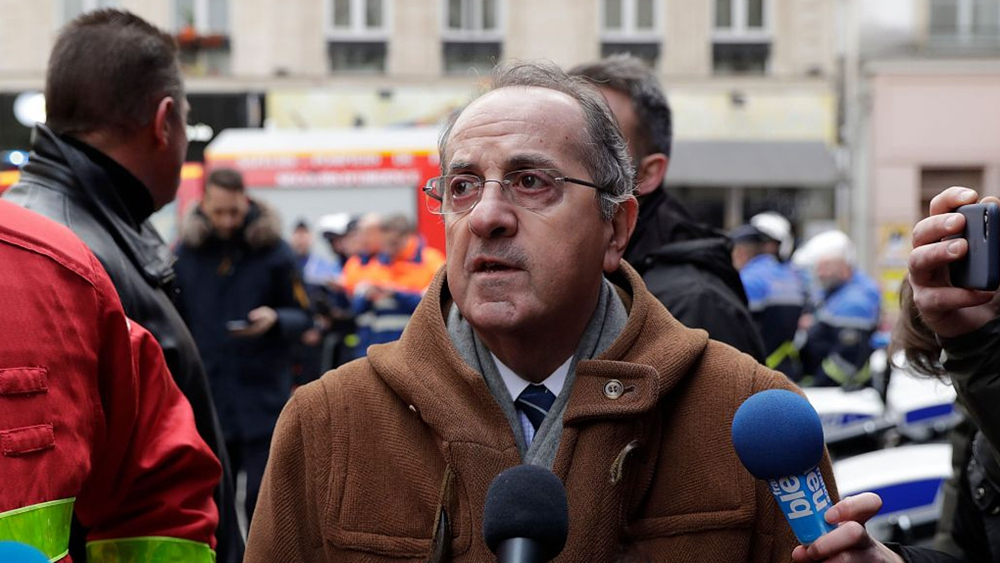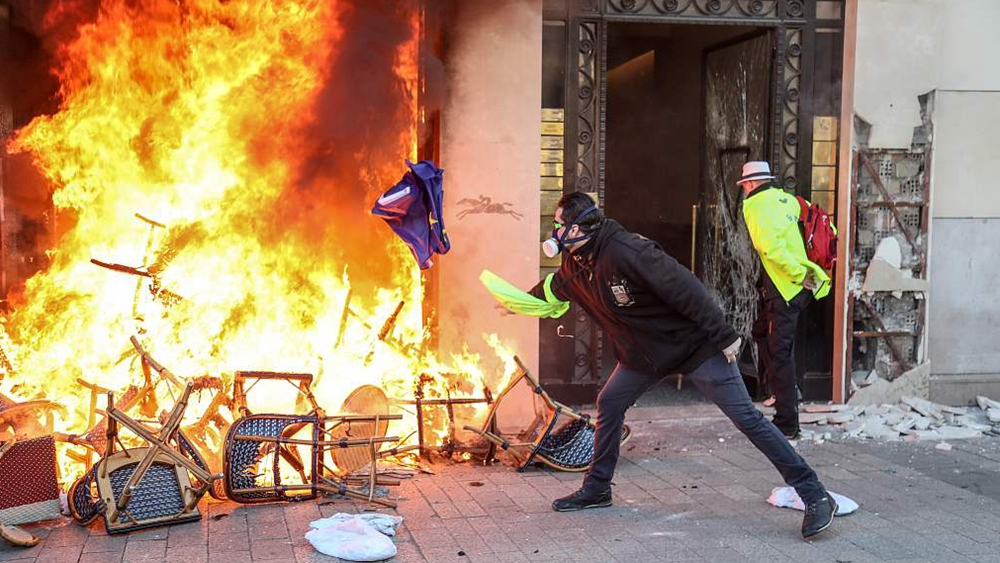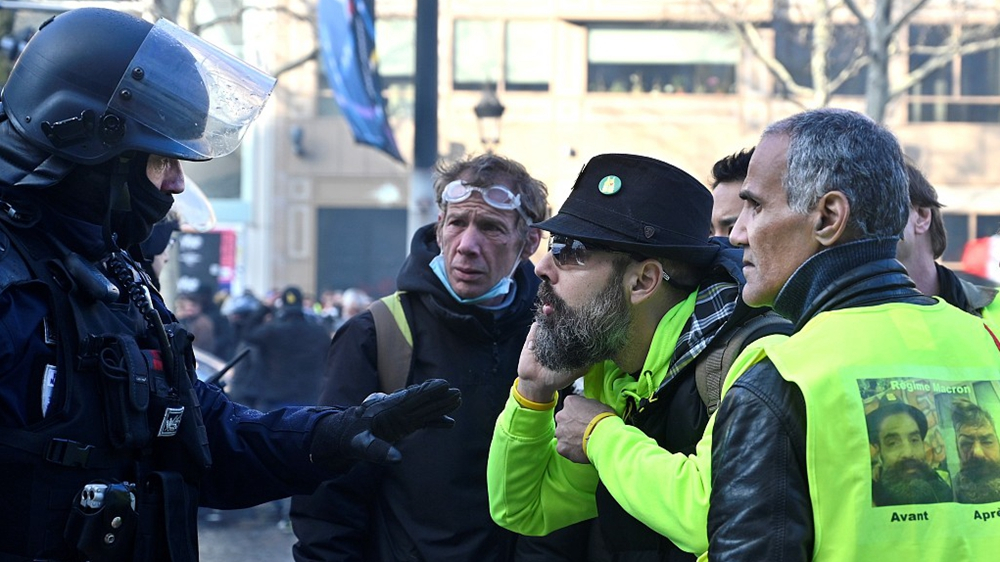
Europe
13:09, 19-Mar-2019
Paris police chief sacked after Champs-Elysees rioting
CGTN

The French government sacked the Paris police chief on Monday and will ban rallies in some areas, after Saturday's violent "yellow vest" protests.
The police's failure to keep the Paris protests from spiraling out of control over the weekend again cast a harsh spotlight on their tactics.
About 5,000 police were deployed in the capital on Saturday, far outnumbering the several hundred black-clad rioters who caused havoc in front of groups of often passive policemen for more than seven hours on the famed Champs-Elysees.
"The events of last Saturday, in particular on the Champs-Elysees, were unacceptable and the president asked the government to provide a response that was up to the needs of the situation," Prime Minister Edouard Philippe said.

A Yellow Vest protester throws a flag of Europe towards a barricade burning in front of a shop on the Champs-Elysees avenue in Paris, March 16, 2019. /VCG Photo
A Yellow Vest protester throws a flag of Europe towards a barricade burning in front of a shop on the Champs-Elysees avenue in Paris, March 16, 2019. /VCG Photo
After criticizing "inappropriate" instructions on the use of rubber bullets given to security forces, he announced that the head of Paris police, 66-year-old Michel Delpuech, had been fired and would be replaced on Wednesday.
The prime minister also said that French authorities would ban demonstrations on the Champs-Elysees and other areas of the country if hooligans were detected there, adding that fines would be increased from 38 euros (43 U.S. dollars) to 135 euros for people attending unauthorized protests.
More than 100 businesses were damaged at the weekend in Paris including dozens of luxury shops and restaurants on the Champs-Elysees.
Since the end of December, the number of "yellow vest" protesters has fallen, but each Saturday thousands still take to the streets, including far-right and far-left groups as well as anarchists who are responsible for much of the violence.

A man walks past a closed shop, which was damaged by protesters on Saturday in Paris, March 18, 2019. /VCG Photo
A man walks past a closed shop, which was damaged by protesters on Saturday in Paris, March 18, 2019. /VCG Photo
Some have called for French police to be far more active in tackling troublemakers.
"You have to take responsibility and engage, with the possibility that people will get hurt," said Frederic Lagache of the Alliance police union on Monday.
For decades, French authorities have usually preferred the opposite, controlling mass protests with tear gas and rubber bullets while avoiding physical confrontation between police and large groups, experts say.
Although some protesters have been injured by the rubber bullets, so far nobody has been killed in clashes with police, but officials say the risk would increase if officers charged the hostile crowds.

One of the leaders of the Yellow Vest movement Jerome Rodrigues (2nd R) argues with a policeman on the Champs-Elysees during yellow vests in Paris, March 16, 2019. /VCG Photo
One of the leaders of the Yellow Vest movement Jerome Rodrigues (2nd R) argues with a policeman on the Champs-Elysees during yellow vests in Paris, March 16, 2019. /VCG Photo
"They would rather see a building damaged, with insurance companies footing the bill, than risk direct contact between police and demonstrators that might cause serious injuries or death," said Olivier Cahn at France's Cesdip law enforcement research institute.
But critics have said that after more than three months of weekly protests, the government now needed to drastically rethink its approach for stamping out the rioting.
"There are techniques and strategies for separating violent demonstrators from the others," said Cahn, adding that Germany has strategies for de-escalating the tensions and separating protesters that are quite effective.
Source(s): AFP

SITEMAP
Copyright © 2018 CGTN. Beijing ICP prepared NO.16065310-3
Copyright © 2018 CGTN. Beijing ICP prepared NO.16065310-3